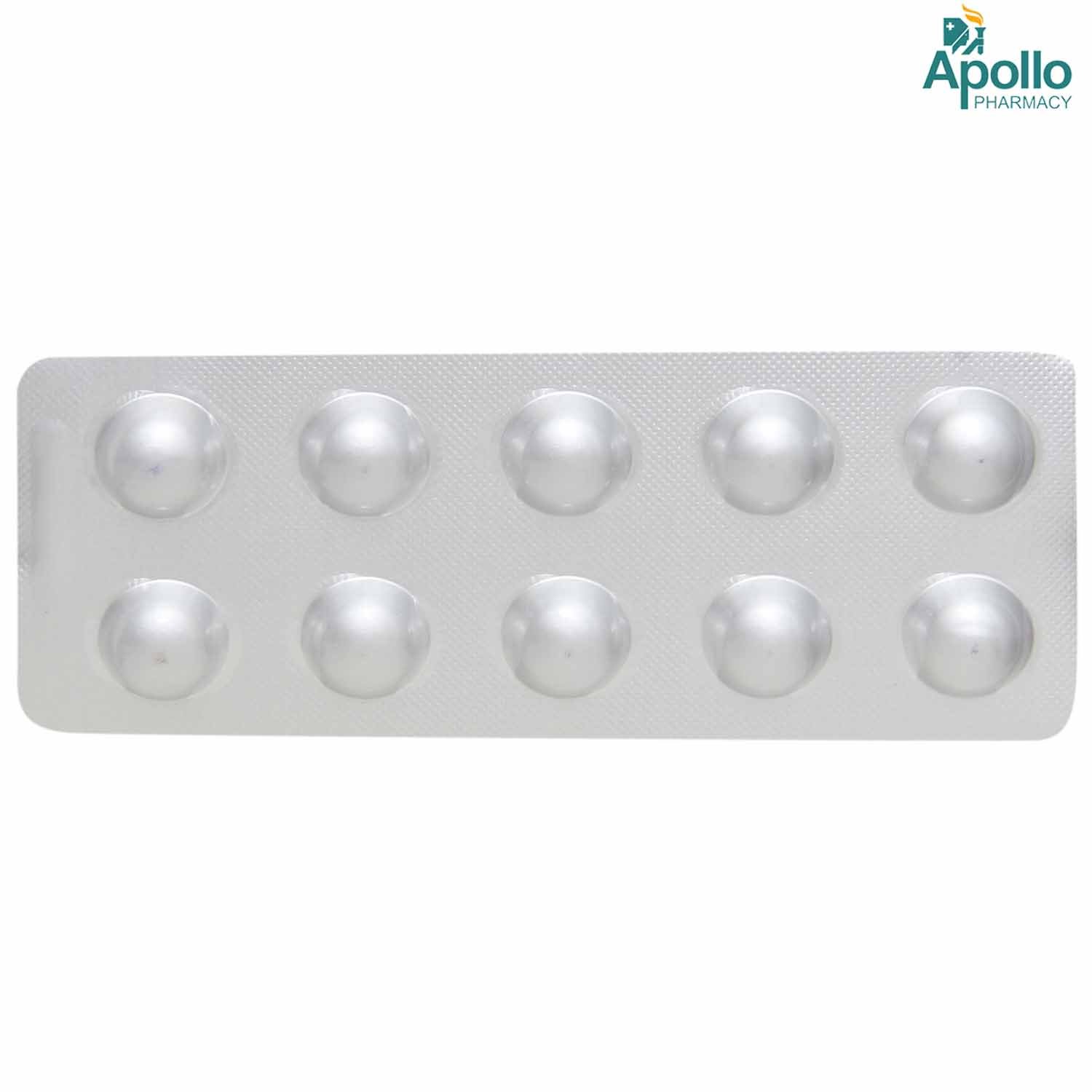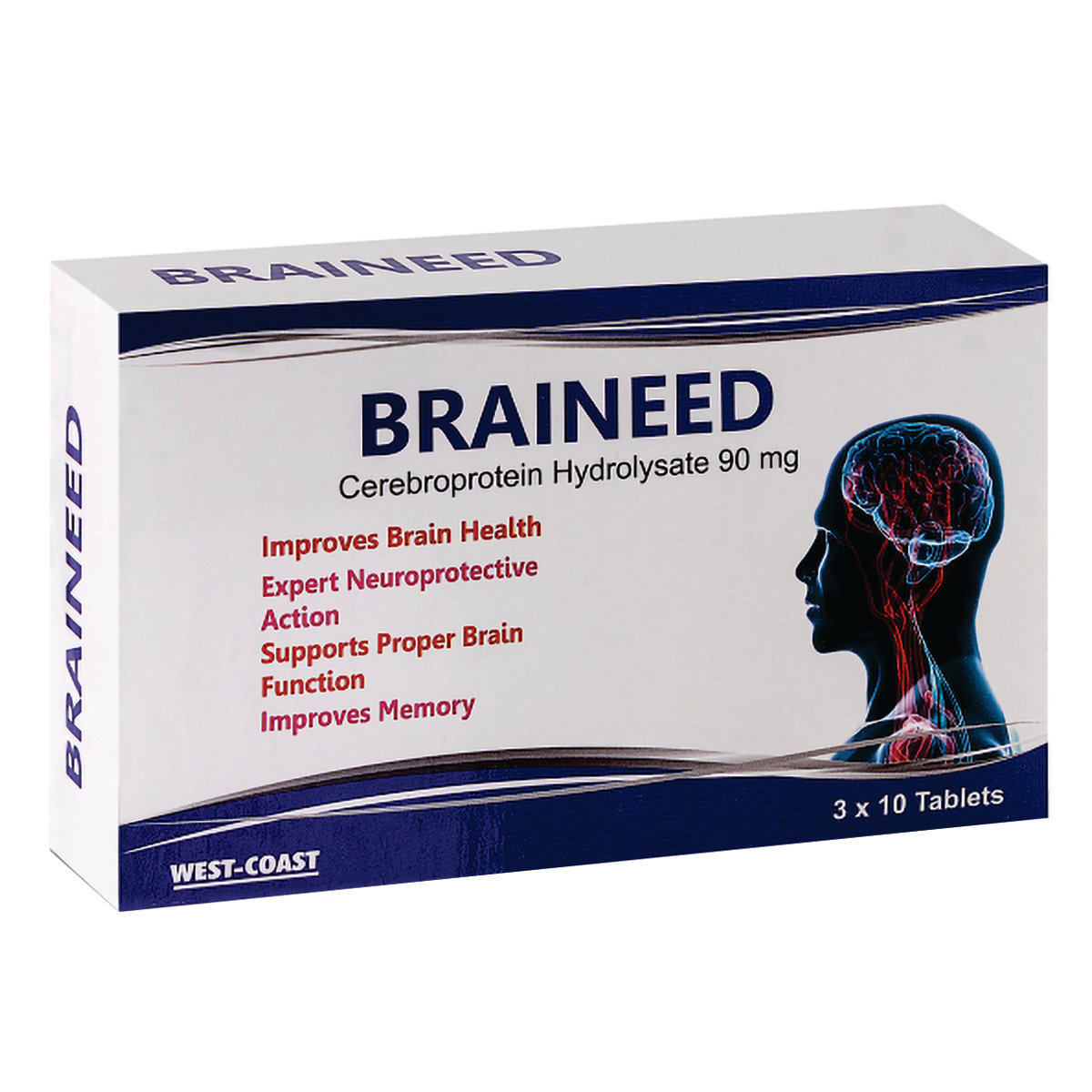Cogvin Tablet 10's
MRP ₹347
(Inclusive of all Taxes)
₹52.0 Cashback (15%)
Provide Delivery Location
Online payment accepted
 Prescription drug
Prescription drugWhats That
Composition :
Manufacturer/Marketer :
Consume Type :
Return Policy :
About Cogvin Tablet 10's
Cogvin Tablet 10's is used in the management of autism and learning disorders. Cogvin Tablet 10's may also be used to prevent/treat attention-deficit hyperactivity disorder (ADHD), ageing, eye disorders, complications of diabetes such as nerve damage, cancer, Alzheimer's disease, liver and kidney problems. Cogvin Tablet 10's is necessary for normal body functions such as proper functioning and development of the heart, muscles, brain, kidney, and other organs.
Cogvin Tablet 10's contains 'L-carnosine', a dipeptide molecule made up of two amino acids, namely, beta-alanine and histidine. Cogvin Tablet 10's prevents cognitive decline by inhibiting amyloid-beta and enhances nervous system function in individuals with autism. It helps in reducing the build-up of amyloid-beta, a protein that forms the brain plaques associated with Alzheimer's. Cogvin Tablet 10's helps prevent kidney and nerve damage in people with diabetes by protecting against damage caused by protein glycation.
You are advised to take Cogvin Tablet 10's for as long as your doctor has recommended it for you, depending on your medical condition. In some cases, you may experience certain common side effects such as stomach upset, headache, nausea, and vomiting. Most of these side effects do not require medical attention and will resolve gradually over time. However, you are advised to talk to your doctor if you experience these side effects persistently.
Let your doctor know if you are taking any other medicines, or herbal products before starting Cogvin Tablet 10's. If you are known to be allergic to any of the components in Cogvin Tablet 10's, please inform your doctor. Consult your doctor before taking Cogvin Tablet 10's if you are pregnant or breastfeeding. Cogvin Tablet 10's should be given to children only if recommended by a doctor. It is unknown if alcohol interacts with Cogvin Tablet 10's, so please consult a doctor if you have any concerns.
Uses of Cogvin Tablet 10's
Directions for Use
Key Benefits
Cogvin Tablet 10's is used in the management of autism, and learning disorders. Cogvin Tablet 10's may also be used to prevent/treat ageing, eye disorders, diabetic nerve damage, cancer, Alzheimer's disease, liver and kidney problems. Cogvin Tablet 10's contains 'L-carnosine', a dipeptide molecule made up of two amino acids, namely, beta-alanine and histidine. Cogvin Tablet 10's works by inhibiting the formation of carbonyl groups, thereby reduces the formation of abnormal proteins. In individuals with autism, Cogvin Tablet 10's helps in improving behaviour, socialization, communication, vocabulary and increases language comprehension. Cogvin Tablet 10's helps prevent kidney and nerve damage in people with diabetes by protecting against damage caused by protein glycation. Cogvin Tablet 10's is necessary for normal body functions such as proper functioning and development of the heart, muscles, brain, kidney, and other organs. Cogvin Tablet 10's prevents cognitive decline by inhibiting amyloid-beta and enhances nervous system function in children with autism. It helps in reducing the build-up of amyloid-beta, a protein that forms the brain plaques associated with Alzheimer's.
Storage
- Contact your doctor immediately if you're experiencing a fast heart rate, palpitations, or other heart-related symptoms. This is crucial to determine whether the symptoms are related to your medication.
- Your doctor may need to adjust your medication regimen to alleviate the fast heart rate symptoms. This could involve changing the medication, reducing the dosage, or adding new medications to counteract the side effects.
- Follow your doctor's advice on monitoring your heart rate and blood pressure. This will help track any changes and ensure your heart rate returns normal.
- If you experience severe symptoms such as chest pain, dizziness, or shortness of breath, seek immediate medical attention. These symptoms can indicate a more serious condition that requires prompt treatment.
Drug Warnings
Do not take Cogvin Tablet 10's if you are allergic to any of its components. Inform your doctor if you have mania, hyperactivity, kidney or liver problems. Consult a doctor if you are pregnant or breastfeeding. Cogvin Tablet 10's should be given to children only if recommended by the doctor. Keep your doctor informed about your health condition and the medicines you are taking to rule out any side effects/interactions.
Drug-Drug Interactions
Drug-Drug Interactions
Login/Sign Up
Drug-Food Interactions
Drug-Food Interactions
Login/Sign Up
Diet & Lifestyle Advise
- Maintain proper weight by following a healthy diet.
- Exercise regularly as it helps in less cognitive decline and brain volume loss.
- Avoid smoking and alcohol consumption.
- Avoid stress by practising meditation or yoga.
- Include fruits and vegetables in your diet as they contain anti-oxidants.
- Eat nutritious food as it helps in cognitive stimulation.
- Limit foods with high cholesterol and saturated fats.
- Cut down on sugar, salt and processed foods.
- Follow a healthy lifestyle as it helps in improving overall health and possibly protects the brain.
Side Effects of Cogvin Tablet 10's
- Stomach upset
- Headache
- Nausea
- Vomiting
Habit Forming
Therapeutic Class
All Substitutes & Brand Comparisons
RX
Cognicare Tablet 10's
Brio Bliss Life Science Pvt Ltd
₹320
(₹28.8 per unit)
17% CHEAPERRX
Cognisense Tablet 10's
Infivis Life Care
₹347
(₹31.23 per unit)
10% CHEAPERRX
Braineed Tablet 10's
Solis Pharmaceuticals
₹356
(₹32.04 per unit)
7% CHEAPER
Author Details
We provide you with authentic, trustworthy and relevant information
Drug-Diseases Interactions
Drug-Diseases Interactions
Login/Sign Up
FAQs
Disease/Condition Glossary
Autism: Autism, also known as autism spectrum disorder, is a developmental disorder that impacts the nervous system and impairs the ability to communicate and interact. It affects the cognitive, social, emotional, and physical health of the individual. Symptoms include difficulty in communication, social interaction, and repetitive behaviour.
Alzheimer's disease: Alzheimer's disease is a neurological disorder that causes dementia (memory loss) and slowly destroys the ability to think, learn, communicate, and eventually the ability to handle daily activities. Symptoms of Alzheimer's disease include memory loss, trouble with familiar tasks, difficulties with problem-solving, trouble with writing or talking, disorientation, problems with reasoning or judgment, mood and personality changes.

Have a query?
Alcohol
Safe if prescribed
It is unknown if alcohol interacts with Cogvin Tablet 10's, so please consult a doctor.
Pregnancy
Consult your doctor
Please consult a doctor if you are pregnant. Your doctor will recommend only if the benefits outweigh the risks.
Breast Feeding
Consult your doctor
Please consult a doctor if you are breastfeeding. Your doctor will decide if Cogvin Tablet 10's can be taken by breastfeeding mothers or not.
Driving
Safe if prescribed
It is unknown whether Cogvin Tablet 10's affects your ability to drive. Drive or operate machinery only if you are alert.
Liver
Consult your doctor
Limited data is available regarding the usage of Cogvin Tablet 10's in patients with liver impairment. Please consult your doctor.
Kidney
Consult your doctor
Limited data is available regarding the usage of Cogvin Tablet 10's in patients with kidney impairment. Please consult your doctor.
Children
Safe if prescribed
Cogvin Tablet 10's should be given to children only if recommended by the doctor.









_0.jpg?tr=q-85)

